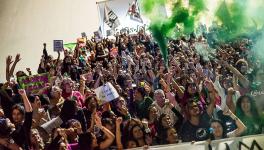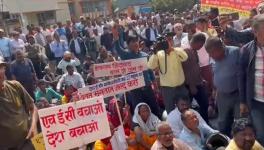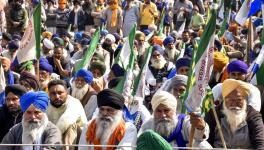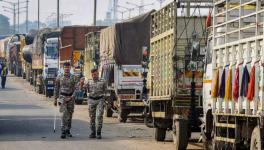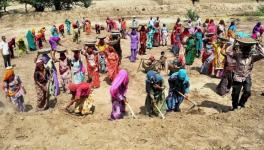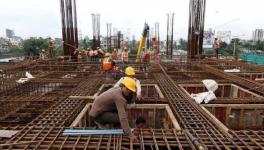Jharkhand Student Community Reels Under Systemic Mismanagement
On 7 June, the Jharkhand High Court cancelled the merit list for the 6th Combined Civil Services examination conducted in 2016 by the Jharkhand Public Service Commission (JPSC). These exams, part of a process that began in December 2016, are the state equivalent of the UPSC and have the same pattern of a written preliminary exam, followed by a mains and interview. The state government is supposed to hold the exam every year but has only held six tests in areound 20 years. The High Court deemed the process of calculating the marks scored by applicants invalid because the JPSC introduced new rules after conducting the test. JPSC had also issued an unclear advertisement, another reason why the merit list was invalidated. Now, the state will have to prepare a fresh list for an exam process that began more than four years ago.
Every JPSC examination triggers disputes and an uproar among applicants. People are losing faith in these exams, as is obvious from the fact that one lakh registered to appear in the 5th JPSC test, but only 70,000 took the exam. The sixth exam was no exception. Right after one lakh students took the test in December 2016, petitions started flooding the High Court. Of the fifteen petitions that challenged the final merit list, the court rejected nine. The petitioners wanted the result cancelled and a declaration from the court that the government illegally added marks from two previously held qualifying papers when determining the merit list.
Now, the High Court has conducted what can only be called a complete autopsy of the processes of the JPSC, finding visible voids in it. Applicants struggled to determine their eligibility, the syllabus, the reservation system, and their candidature. Their trauma and the legal burden followed a rigorous routine of preparing for the tests, which are extremely tough to crack.
The CMIE estimated India’s unemployment rate at close to 10% in early June. In May, it put the figure at 16% for Jharkhand. Even in pre-pandemic times, the state lagged behind the rest of the country in employment. The NITI Aayog has estimated that Jharkhand accounts for the highest number of migrant workers. According to the Economic Survey, 2017, around 50 lakh people migrated out of the state to work between 2001 and 2011. In 2011, more than 45% of employment avenues in the state were in the primary sector, but it contributes only 22% to the state GDP. So one can conclude that the condition of the people of the state is not good. It is this which makes the JPSC a big draw among young residents of Jharkhand. These exams select candidates for block-level posts to positions in the economic departments. Government jobs are a source of social and economic uplift, and the applicants and their families seem to recognise this, while the JPSC and state government do not.
The legal battle and aftermath:
In court, the government resorted to the report of the VS Dube committee. This committee, headed by the former chief secretary of Jharkhand, gave some recommendations that the JPSC recognised in April 2013. The committee recommended that the first paper, Paper 1, a test of English and Hindi language skills, should be “qualifying” in nature. In earlier exams, the total marks that the JPSC calculated for were 950. However, the JPSC did a 1,050-mark calculation for the mains in the sixth round of tests. It did this by including the marks secured in the qualifying subjects. The result was confusion, as, according to students, they were not told about this new calculation.
The result is that the state must now create a fresh merit list by August. The even bigger tragedy is that all appointments based on the sixth JPSC result, released last April, naturally, had to be quashed by the court. It held the JPSC chairman Sudhir Tripathi, and members AK Chattoraj, Shravan Soy and TN Sahu and the controller of examinations, Gyanendra Kumar, responsible for the situation. However, judging by the remarks of JPSC advocate Sanjay Piparwal, the rigmarole is not over. Piparwal recently told the Dainik Bhaskar newspaper that the verdict will be challenged in the Supreme Court; he insisted the merit list followed the Dube report and the advertisement was correct.
Senior advocate Subhasish Rasik Soren and advocate Vineet Boris Ekka represented one of the successful groups of petitioners, Mukesh Kumar and others. Soren said over the phone from Ranchi that the test process had many ambiguities and was “bad in law”. For example, the marks scored by candidates are supposed to remain confidential until the merit list is released. Now, as the results are already out, the details are in the public domain. He fears the new merit list will be vulnerable to “manipulation” and “adjustment”. In other words, there are chances that students from weaker sections will be intimidated or influenced to help students who are better-off socially or economically.
More than 70 students had quit their jobs to join the JPSC after clearing the tests. Others have been waiting for four years for these results. Anomalies in the examination process coupled with two waves of the Covid-19 pandemic have affected thousands of applicants who also shouldered the further burden of a prolonged legal battle and uncertain future.
Rejected Petitions Spoke of Casteism
Even the nine petitions rejected by the High Court spoke of egregious irregularities in the JPSC examination process, including discrimination on caste lines. The 124-page High Court judgement highlights that the JPSC lacks routine, has no regular or established processes to conduct the examinations, etc. Six of the rejected petitions had alleged that successful candidates from the reserved category were not getting appointments in the higher posts. The court dismissed their charge on the finding that the advertisement mentioned that reserved category candidates would be considered in the general category during appointments. It means that students otherwise entitled to the reservation would be denied its benefits if they failed to secure appointments via the general merit list. These petitioners also alleged instances of candidates scoring fewer marks getting higher civil services departments than students who had availed of reservation.
Resolution 5562: History of the Anomaly
Another group of rejected petitions was filed by Rahul Kumar and others, represented by advocates Subhasish Rasik Soren and Vineet Boris Ekka. They challenged the JPSC resolution No. 5562 dated 19 April 2017. This resolution has a unique history. The first result of the preliminary exam of the 6th JPSC was out in February 2017 and got immediately challenged. In it, 5138 candidates—15 times the number of vacancies mentioned in the advertisement—were declared as having passed. But the selection of these 5138 candidates did not follow the rules of reservation. Not only this, the JPSC did not prescribe a separate cut-off mark for students in the reserved category. When it triggered a statewide agitation, the JPSC released resolution no. 5562. This resolution says that all candidates belonging to the reserved category who have scored marks equivalent to the last selected candidate in the first list qualify to appear in the main exam.
As a result, 965 more students got included as candidates for the mains test held from 28 January to 1 February 2019. Whereas the earlier result was a travesty of justice, the sudden increase in the number of candidates became another source of dissatisfaction, albeit for a new set of candidates.
For this reason, advocate Subhasish Rasik Soren refers to this examination process as the “great anomaly”. The exam process has meandered so often from any set path that it seems the JPSC was only playing with convenient interpretations with every successive test. The High Court dismissed the Rahul Kumar petition as it felt there was not enough ground to cancel the entire examination.
The condition of the highest-level state examination is such that a CBI probe is underway into irregularities committed in the first two JPSC exams. Even in the 5th JPSC test, officials were accused of helping privileged candidates get a premium job, leaving out those who had cleared the prelims. If this is the condition of tests conducted at the highest level in the state, one can only imagine the anomalies that feature down the hierarchy.
VS Dube Report
The VS Dube committee report was instrumental to the hearings on this case. In March 2012, Dube and other members were tasked to study the examination pattern for the Combined Civil Services examination. The committee suggested including English as a qualifying language paper. At the time, the 10th standard-level Hindi was the only qualifying test. The government of Jharkhand accepted the suggestion, but as recent events show, did not implement it.
The Dube committee did not favour holding optional papers in the languages of Jharkhand—an option the JPSC offers to candidates. According to the committee report, a choice of several optional papers slows testing and delays results. In other words, the committee recognised that the state conducts these exams with meagre resources and cannot even accommodate tests in local languages! So the question arises, is the state lethargic or the Centre blind to the lack of resources with bodies entrusted to conduct fair and quick examinations to fill government posts? Since the state lacks resources to oversee an exam, does it not leave room for malpractices, favouritism, and discrimination?
Jharkhand needs to demystify the JPSC process and provide it with enough resources to conduct fair and equitable examinations. It must ensure diversity and representation among candidates selected to administrative departments. It is the least a state grappling with hunger and illiteracy, Maoism and human rights abuse can do: find responsive local administrators who are acquainted with ground realities.
The author is an independent journalist based in Jharkhand. The views are personal.
Get the latest reports & analysis with people's perspective on Protests, movements & deep analytical videos, discussions of the current affairs in your Telegram app. Subscribe to NewsClick's Telegram channel & get Real-Time updates on stories, as they get published on our website.









